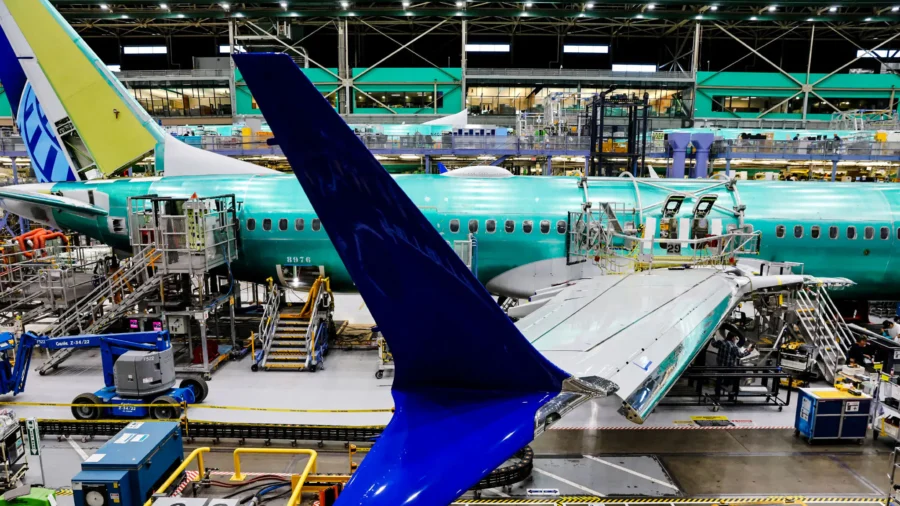Boeing has announced it will lay off 10 percent of its workforce in the coming months and end production of its 767 cargo airplane after it completes current orders for some two dozen jets.
Around 17,000 jobs will be cut as part of the reduction, with Boeing also announcing it will further delay the launch of 777X, a new model that is already several years behind schedule.
The announcement, made by Boeing CEO Kelly Ortberg said in an Oct. 11 memo to employees, comes amid an ongoing strike by 33,000 workers that has halted production of the planemaker’s 737 MAX, 767, and 777 jets.
“Our business is in a difficult position, and it is hard to overstate the challenges we face together,” Ortberg said in the memo. “Beyond navigating our current environment, restoring our company requires tough decisions and we will have to make structural changes to ensure we can stay competitive and deliver for our customers over the long term.”
Ortberg said that the job cuts will allow Boeing to “align with our financial reality and to a more focused set of priorities,” adding that the across-the-board reductions will include executives, managers, and regular employees.
Boeing, which in mid-September announced a hiring freeze, a halt to nonessential spending, and teased the possibility of layoffs, said in a separate release on Oct. 11 that it expects to recognize negative impacts to its financial results when it reports third-quarter earnings on Oct. 23. Boeing cited charges for certain commercial and defense programs, as well as the strike, for the impacts. The company now expects revenues of $17.8 billion, a negative operating cash flow of $1.3 billion, and a loss per share of $9.97.
“While our business is facing near-term challenges, we are making important strategic decisions for our future and have a clear view on the work we must do to restore our company,” Ortberg said in a statement that accompanied the release pertaining to earnings.
The nearly four-week-long strike, which began on Sept. 13, shows no signs of ending as talks between Boeing and the union representing the striking workers broke down earlier this week.
Boeing and the union representing 33,000 striking workers recently announced that their negotiations have stalled, with no further discussions planned. According to Stephanie Pope, CEO of Boeing’s commercial airplanes unit, two days of federally mediated talks this week ended without resolving significant differences.
“The union made non-negotiable demands far in excess of what can be accepted if we are to remain competitive as a business,” she said in an Oct. 8 statement to Boeing employees. “Given that position, further negotiations do not make sense at this point and our offer has been withdrawn.”
Credit-rating agencies have warned that Boeing stock could be downgraded to junk levels and needs to preserve cash. Fitch said on Sept. 13 that Boeing had little wiggle room to preserve its investment-grade rating if the strike were to drag on, while Moody’s announced on the same day that it was putting Boeing’s ratings on review for a downgrade. S&P said on Oct. 8 that it had placed the planemaker’s rating on CreditWatch negative as the work stoppage continued.
“We know these decisions will cause difficulty for you, your families and our team, and I sincerely wish we could avoid taking them,” Ortberg wrote in the memo to employees, referring to the job cuts. “However, the state of our business and our future recovery require tough actions.”
In the memo, the Boeing chief also said that development challenges, a flight test pause, and work stoppages would delay the first delivery of the 777X to 2026.
Also, production of the 767 commercial freighter will conclude in 2027 after completing the 29 current customer orders.
From The Epoch Times

